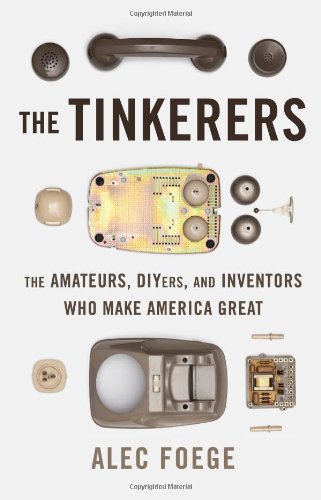
The Tinkerers
- Length: 224 pages
- Edition: 1
- Language: English
- Publisher: Basic Books
- Publication Date: 2013-01-01
- ISBN-10: 0465009239
- ISBN-13: 9780465009237
- Sales Rank: #1191216 (See Top 100 Books)
Having completed her transition from a manufacturing economy, America – it is said – has stopped making things. When there are breakthroughs in engineering and design, it’s usually thanks to a team of corporate researchers trying to squeeze out more profit. But once upon a time, the United States was a nation of tinkerers. Amateurs and professionals alike applied their ingenuity and talent to the problems of their day, coming up with innovative solutions that at once channeled the optimistic spirit of America and kept that spirit alive. Guided by the curiosity of an inquiring mind, a desire to know how things work, and a belief that anything can be improved, they laid the foundations for the American century.
In The Tinkerers, Alec Foege presents a version of American history told through feats of engineering, large and small. He argues that reports of tinkering’s death have been greatly exaggerated; since World War II, it has been the guiding force behind projects from corporate-sponsored innovations (the personal computer, Ethernet) to smaller scale inventions with great potential (a machine that can make low-cost eyeglass lenses for people in impoverished countries, a device that uses lasers to shoot malarial mosquitoes out of the sky). Think tanks and companies have recognized the benefits of tinkering and have done their best to harness and institutionalize it. But as systems become more complex, budding inventors may become intimidated. Foege argues that this would be an enormous loss to a nation that achieved its strength largely thanks to the accomplishments of its innovators. He shows us how tinkering remains, in new and unexpected forms, at the heart of American society and culture.







